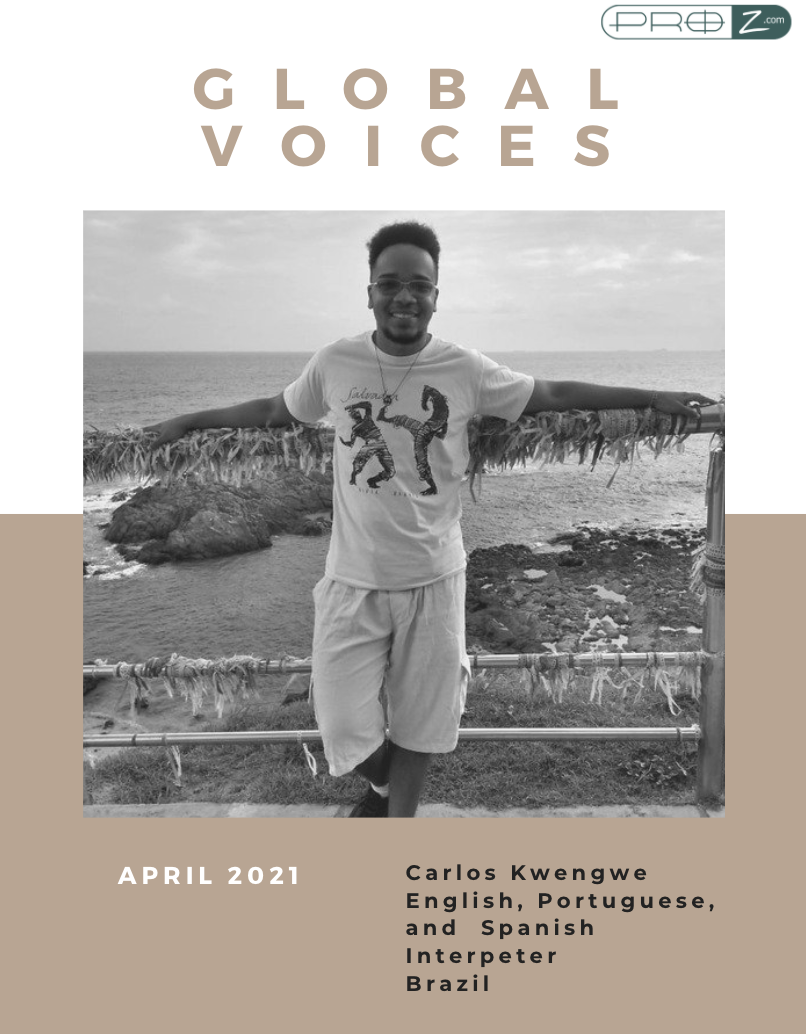
In fact it turns out the story’s logical enough, especially as Mozambique and Brazil share the same language. Carlos Kwengwe’s mother is a white Brazilian, who met his father, a black Mozambican, when they were studying together in Brazil in the 80s, at a time when Mozambique was still being torn apart by civil war.
When they later left Brazil for Mozambique, the transit point was via South Africa, where Carlos’ father had some work to do. At the time, Apartheid was still in full swing and mixed race couples had to run the gauntlet every time they stepped out onto the street. Carlos was born in 1995 while his parents were still working and studying in the country. By then Mandela was in power, but things hadn’t changed overnight of course.
Carlos then spent 5 years in Maputo, but the family moved further north when his parents worked on a development project on the banks of the Zambezi River. However, they were ambitious for their son and when he was 12, they sent him and his elder brother to Malawi, to study in English at St Andrews, an International British School. This meant the boys suddenly had to adopt English as a first language, as there were no concessions for ESL students. They did all their school exams in English.
Their plan was to leave for Canada as international students, but the fees were prohibitive, after years of already expensive schooling. The situation wasn’t helped when his parents lost their jobs on political grounds. So the family upped sticks and headed back to Brazil, only to find that the expensive education the boys had received in Malawi counted for nothing in the Brazilian system. Their A-Levels were therefore of no use in getting into university – all very frustrating. It also meant switching back to Portuguese as a first language. Plus the added the challenge of adapting to Brazilian Portuguese, as Mozambican Portuguese is much nearer to the variant spoken in Portugal.

Carlos enrolled in a marketing course, specialising in digital marketing, but found he was underwhelmed by the low pay and long hours. It was almost by chance that he side-stepped into interpreting. Having turned to various freelancer platforms in search of marketing jobs, and built up a portfolio, one of his American clients suddenly needed an interpreter in Brazil. Carlos had no experience or qualifications at the time, but soon saw the benefits of making the switch. It came naturally to him, particularly because of his unique experience of having two “first” languages – those expensive school years in Malawi were not wasted after all. This was in 2018, and Carlos decided that interpreting was the future. He did some formal training, found out about Boostlingo and then signed up with ProZ.com.
Now interpreting forms a regular part of his working life, alongside a few occasional marketing jobs. The calls he picks up via ProZ.com for Boostlingo are mostly medical: setting appointments, along with a few emergency calls. The beneficiaries are often Brazilians in the USA – mostly mothers dealing with their children, but also various medical issues from gynaecological queries to mammograms and ultrasound scans.
Given the unpredictability of each situation and the complexity of the terminology, Carlos deals with it with remarkable calm. Some of these calls can be quite stressful – imagine one call he had to deal with – a distressed mother whose child has fallen from the sofa and hit his head. The child is bleeding, the ambulance is on the way (you can hear it approaching down the phone), and the mother is panicking and crying. And throughout you’re having to deal with virtually simultaneous interpreting.

But Carlos came through the experience, and it gave him a real insight into his potential for interpreting as a career. It’s one he intends to pursue, in combination with his marketing role and writing reviews of projects. Between these various tasks, he’s never short of work, and earns a good living.
But above all, he values the rewards of the job, helping people communicate at times when they feel vulnerable and in need of support. Aged just 26, Carlos has found his niche and is doing just fine. The future looks bright.

Carlos' ProZ profile: https://www.proz.com/profile/2789855
Find out more about the ProZ.com Interpreter Network
Global Voices is a series featuring interpreters around the world. To learn more about the feature, contact Andrew at andrewmorris@proz.com


